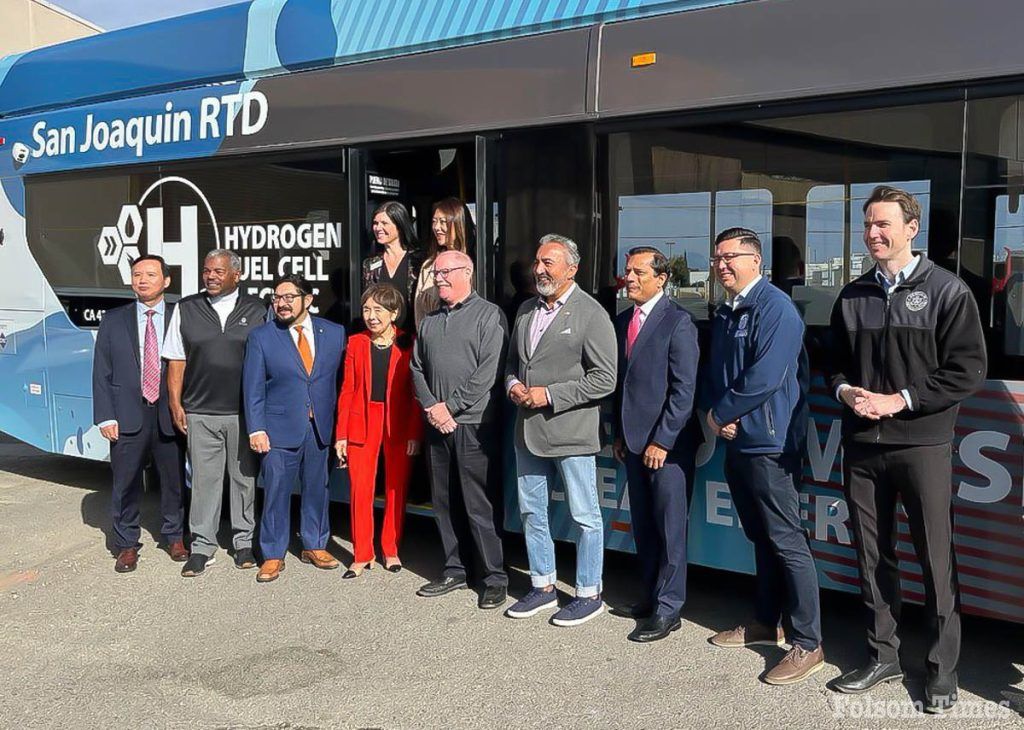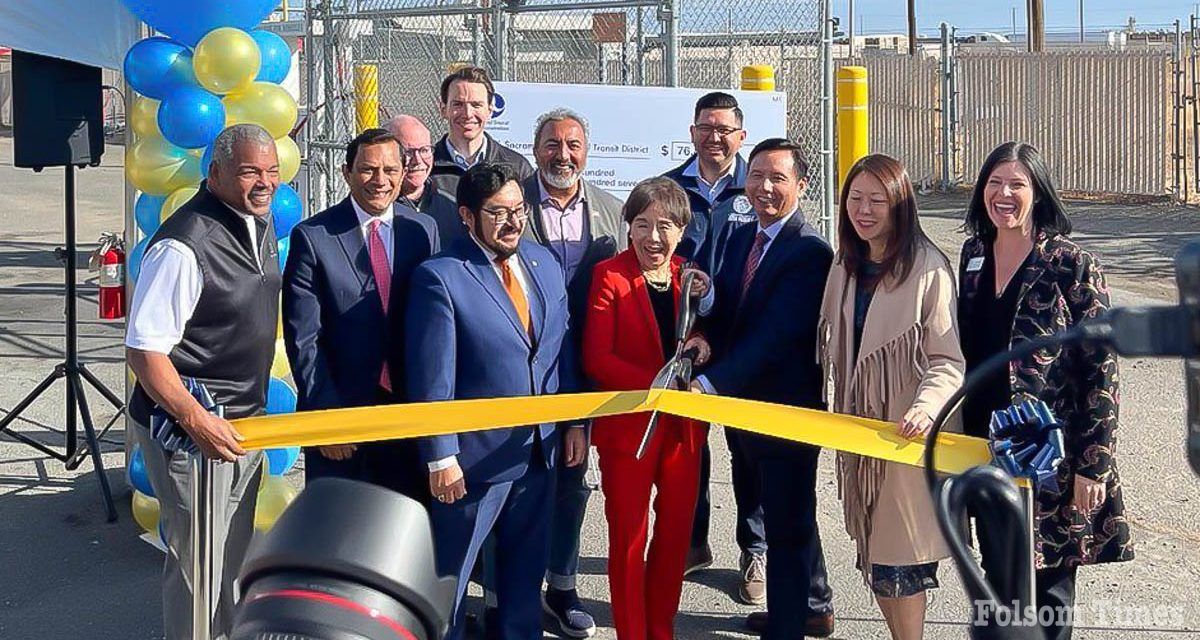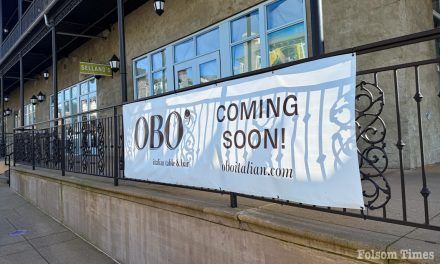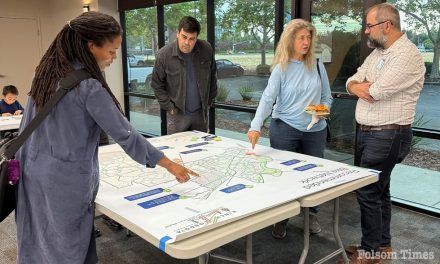Leadership and key staff from the Sacramento Regional Transit District (SacRT) officially celebrated the acceptance of nearly $77 million in federal grant funding Wednesday morning during a special event attended by state officials, and dignitaries from Sacramento County. The gathering, held at McClellan Business Park, marked the beginning of SacRT’s ambitious push toward a zero-emission future and the creation of the region’s first hydrogen fuel infrastructure.
The funding is one of the nation’s largest allocations through the Federal Transit Administration’s (FTA) Low or No Emission Grant program—will propel SacRT’s plans to acquire new hydrogen fuel cell buses, modernize its maintenance facilities, and launch a workforce development program to support sustainable transit operations.
“This funding is a pivotal step in our journey towards a greener, more sustainable future,” said SacRT General Manager and CEO Henry Li at the event. “By integrating hydrogen fuel cell technology into our bus fleet, we are not only improving the reliability and efficiency of our services but also contributing significantly to better air quality for the entire region.”
Board Chair and Sacramento County Supervisor Patrick Kennedy highlighted the broader implications of the project, noting, “This is the start of a new hydrogen economy in Sacramento, and SacRT is proud to lead the way. We’ll be replacing older buses with hydrogen fuel cell vehicles that are much quieter and emit zero carbon, making a lasting impact on both our environment and community.”
The announcement came as part of a larger national effort led by the Biden-Harris Administration, which today revealed over $1.5 billion in funding across 117 projects in 47 states to modernize public transportation systems. U.S. Transportation Secretary Pete Buttigieg praised the investments, explaining that the Bipartisan Infrastructure Law has enabled the federal government to replace “old buses running on dirty, expensive fuels with modern and zero-emission alternatives, connecting people to where they need to go.”
The $76.8 million grant, SacRT’s third-largest ever, will fund the acquisition of 29 state-of-the-art hydrogen fuel cell buses, replacing aging vehicles currently in service. These new buses will offer a cleaner, more efficient transportation option to residents, particularly in northern Sacramento’s disadvantaged communities. The initiative aims to fully convert the region’s bus fleet to zero-emission vehicles (ZEBs) by 2040, with operations in the northern corridor targeted to be emissions-free by 2028.
In addition to the new buses, the project will modernize SacRT’s bus maintenance facility at the McClellan Business Park. This upgrade will ensure the facility is equipped to support hydrogen fueling infrastructure and accommodate other future zero-emission vehicles. A key component of the project is the launch of a workforce development program designed to prepare current and future employees with the skills needed to operate and maintain the advanced zero-emission fleet.
SacRT’s total funding for the project will amount to approximately $102 million, bolstered by several additional grants and local matching funds. In addition to the nearly $77 million federal award, the Sacramento Area Council of Governments (SACOG) contributed $10 million from SB125, and the California Air Resources Board (CARB) provided $7.5 million from its Hybrid and Zero-Emission Truck and Bus Voucher Incentive Project (HVIP). SacRT is also anticipating $2.9 million from the Sacramento Metropolitan Air Quality Management District and $4 million from the EnergIIZE Fund through the California Energy Commission.
“These federal and local investments represent a significant down payment on a cleaner, more dependable transit system,” said Senator Alex Padilla. “For too long, Sacramento communities along busy transit corridors have borne the brunt of harmful climate and air quality impacts. With support from the Bipartisan Infrastructure Law, SacRT is building a modern system that creates good-paying jobs, reduces pollution, and puts us on the path to a zero-emission future.”
Congresswoman Doris Matsui (CA-07) also expressed enthusiasm for the project, adding, “SacRT continues to be at the forefront of sustainable innovation. This $76.8 million federal infusion will accelerate the rollout of zero-emission technology, improve air quality, and deliver meaningful improvements to public transit. This project will connect residents to opportunity while ensuring the health of our community and planet.”
SacRT’s commitment to sustainability aligns with broader regional and national goals to tackle climate change. The new hydrogen-powered fleet will significantly reduce air pollution and support California’s efforts to meet the goal of net-zero carbon emissions by 2050. U.S. factories will build the buses funded by this grant, supporting local economies while advancing clean transportation solutions.
Congressman Ami Bera (CA-06) noted the project’s potential to create lasting benefits: “This funding will help transition Sacramento’s public transportation system to cleaner, more efficient technology, improving service reliability, creating good-paying jobs, and contributing to better air quality. This is a significant step forward in our region’s commitment to sustainability and innovation.”
Congressman Kevin Kiley (CA-03) echoed these sentiments, emphasizing that SacRT’s grant-funded project will result in improved operations and infrastructure. “The transition to hydrogen-powered buses will bring not only cleaner air but also more reliable transit services across the region,” Kiley said. “By investing in maintenance training and workforce development, we’re ensuring this transition is a success for years to come.”
The new grant also reinforces SacRT’s long-term strategy to enhance public transportation, creating job opportunities while ensuring a cleaner environment for the Sacramento community. With today’s funding, SacRT is now positioned to take significant steps toward its goal of full fleet electrification by 2040.

The SacRT project is part of the FTA’s Grants for Buses and Bus Facilities and Low or No Emission (Low-No) Vehicle programs, which received increased funding through the Bipartisan Infrastructure Law. For Fiscal Year 2024, approximately $1.5 billion was available for bus modernization efforts. Of the new buses funded nationwide, nearly 80 percent will use zero- or low-emission technology.
These programs help transit agencies nationwide invest in sustainable infrastructure, acquire modern vehicles, and train a skilled workforce to operate and maintain advanced transit systems. Over the last three years, the FTA has allocated almost $5 billion to replace aging buses and facilities with cleaner, more efficient alternatives.
“This is very exciting news for Sacramento Regional Transit and the community we serve,” said Kennedy. “Thanks to this grant, SacRT can begin transitioning to a quieter, more sustainable fleet, improving quality of life for riders and residents alike.”
SacRT encourages the public to learn more about its zero-emission initiatives by visitingwww.sacrt.com/newbusfacility. With today’s announcement, SacRT is taking a bold step toward a future of clean, efficient, and sustainable public transportation for the Sacramento region.




